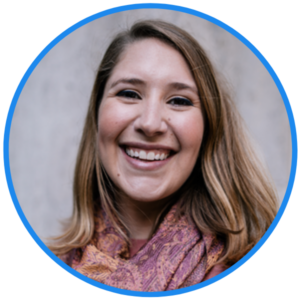
October 10, 2024
At the JCRC Council Kickoff last month, as part of an icebreaker we each shared our “longest trip ever,” either literal or metaphorical. Mine was this past year. For so many of us, this new year, this Rosh Hashanah, in particular, calls for a fresh start.
Our community has been through unimaginable pain and trauma—both of which are still unfolding.
The anniversary of Oct 7 is a time for grief, anger, remembrance, action, and community. It’s also a time for reflection, especially since it falls during the Days of Awe.
In reflection, I’ve come to believe that when it comes to addressing the meteoric rise in antisemitism, we need to use more of the tools in our toolbox, especially the ones that have become a bit rusty in the urgency of now.
Internal Jewish Community Dialogue – In addition to external threats, our Jewish community is being pulled apart internally. The Oct 7 massacre and the resulting multi-front war have ignited unprecedented divisions within the Jewish community. These divisions are not just emotionally painful; they have practical implications for the effectiveness of the JCRC. As an entity built on the power of united community voices, our work becomes far more challenging in the face of competing internal voices. If we don’t do a better job of listening and working to reach consensus within, we’re not set up for success. Thankfully, a handful of grassroots dialogue groups have been created, attempting to build understanding across these fractures. More is needed. The JCRC began some of these conversations at our Council Kickoff and we look forward to growing these and incorporating the learnings into our work in the year to come.
Long-Term Relationship Building – In the Confronting Hate Together event in September, we discussed the necessity of fostering relationships from a place of curiosity if we want this work to be effective—with the goal being to help the other person see themselves reflected in our own experience. Last week, I had the opportunity to sit down with a state legislator of a different background with whom we haven’t been able to engage for the better part of a year because of the impact of Oct 7th on our communities. I entered our first conversation with a singular goal: building understanding and respect. After two hours, not only did I see my experience, and our community’s experience, reflected in hers, and vice-versa, but from this place of mutual respect and understanding, a door to working together was also opened. I feel confident that if we came to this legislator about a bill or other issue, we would have an honest and effective place from which to work together.
All Cylinders Go – One of the foundational rules of community relations work is to try to address a problem/situation at a 1:1 relationship level first. That said, we’ve seen too many times over the last year when “good” conversations with leaders have, over and over again, led only to inaction. That inaction has often led to more anti-Jewish harm. When necessary (and this is subjective), we need to be more willing to step up and employ the strength of community leaders and grassroots engagement to make change. You can see the effectiveness of these efforts through results at the University of Washington, in the letter from Superintendent Chris Reykdal about walkouts on Oct 7th, and in new signatories to Elected and Civic Leader Pledge Against Antisemitism, including Attorney General Bob Ferguson, Senator Rebecca Saldaña, and Representative Mari Leavitt.
On September 28, the Seattle area was treated to an incredible sight—a full double rainbow.
On that day, a teacher reminded me that rainbows are an optical illusion—they don’t exist in a certain spot in the sky. Each person sees a different rainbow depending on their position. With this happening so close to the high holidays and the anniversary of October 7, I can’t help but make the connection to this as a powerful metaphor for the unique positions from which we have each experienced this last year.
Let us pledge in the coming year to lean into understanding these experiences—finding comfort in the shared ones, holding curiosity for distinct ones, and creating spaces in which we can show up as our full selves to work toward the safety and well-being of the Jewish people, and all peoples.
G’mar Chatimah Tovah,
Maxima Patashnik
Director of JCRC and Government Affairs
Jewish Federation of Greater Seattle

The Jewish Federation of Greater Seattle is a 501(c)(3) non-profit organization.
Copyright © 2024 Jewish Federation of Greater Seattle. All rights reserved.